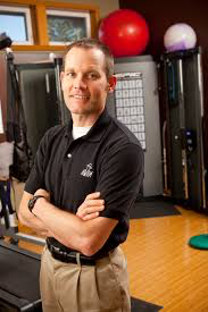- Registration Form
- Cost:
$350
Discount for MU CIs and alumni $300 by 1/15/2021
Early Bird Discount by 1/15/2021 $325 - View additional continuing education courses presented by the Marquette University College of Health Sciences.
- Direct inquiries to
diane.slaughter@marquette.edu
Neuropracticity 2.0
- April 17, 2021: 8 a.m. to 4:30 p.m.
- April 18, 2021: 7:30 a.m. to noon
Delivery: Virtual
An onsite viewing option on Marquette campus may be available if this is deemed safe to do at the time of the course.
Course Description
This course will reveal a novel and intense clinical approach built specifically for persons that are 6 months or more in recovery post cerebrovascular accident (CVA); with Multiple Sclerosis (MS), with Parkinson’s Disease (PD) after brain injury or surgery (from concussion, to TBI, to tumor) , .This approach includes Interventions that are designed and built directly from evidence and are adapted with consideration for the unique attributes of changes in the body and brain months and years after CVA/brain injury and with disease-onset for years. Additionally, this application will reveal incorporation of recent advances in motivation, motor learning, and practice - displaying all through videotape case study demonstration. Attendees will be engaged in a thought-provoking presentation that challenges previous misconceptions about the timeline of recovery and potential for improvement years after CVA and the potential to recover with MS, PD, concussion in the elderly, etc. This presentation builds on recent evidence of high-intensity interval training, procedural memory training, circuit training, task specific overtraining, motor learning, OPTIMAL, forced-use and many more – across mobility, communication, cognition and ADL applications providing the learner from all practice points with tools to rehabilitate clients regardless of equipment and technological availability. This course is intended for PT, OT, and SLP.
Course Objectives and Outline
Course objectives
- Identify physiologic changes that occur in many individuals months and years post CVA, brain injury, and with PD.
- Apply recent evidence in motor learning and motivation to maximize the recovery for clients in chronic stroke rehabilitation.
- Apply recent evidence in practice structure and feedback to maximize the recovery for clients after brain lesion/injury.
- Debunk rehabilitation myths about recovery dependence on timing and technology in effective rehabilitative outcomes in those with brain injury, degenerative disease, or stroke.
Outline of course
- Introduction to the physiologic and morphologic changes in chronic stroke recovery, degenerative disease, and brain injury
- Evidence in chronic stroke rehabilitation to date: successes, limitations and opportunities
- Novel clinical application in chronic post stroke recovery: motivational and exercise attributes
- Novel clinical application in chronic post stroke recovery: practice structure and feedback attributes
- Case studies in chronic stroke, PD, MS, TBI recovery. Videotape application for use all points in the continuum of care
- Questions and summary
Contact hours
13 CEUs – Marquette University sponsored
Speaker Biography

Mike Studer, PT, MHS, NCS, CEEAA, CWT, CSST, FAPTA, received his physical therapy degree from the University of Missouri-Columbia in 1991. He received his post-professional MHS degree in physical therapy with neurologic emphasis from the University of Indianapolis. He has been board-certified as a Clinical Specialist in Neurologic Physical Therapy since 1995 and has been designated a Certified Exercise Expert in the Aging Adult (CEEAA) by the Academy of Geriatric PT since 2011. Mike has served as the Vice-president of the Academy of Neurologic Physical Therapy of the APTA and has been the chair and vice-chair of several special interest groups at the national level in each of the Academies of Neurologic and Geriatric PT, including Balance and Falls, Stroke, and the Practice Committee in neurology. He is a full-time treating therapist at and founder of Northwest Rehabilitation Associates, in Oregon. Mr.Studer has presented courses and published articles on neurologic and geriatric rehabilitation since 1995 and has authored and co-authored over 30 articles on topics of neurology and geriatrics, as well as several book chapters on stroke, cognition, PD, and preventative care as well.
Mike is now regularly a guest lecturer on a national and international basis at several universities and national meetings on the topics of dual task rehabilitation, concussion, stroke, Parkinson’s Disease, balance, motor control, motor learning in rehabilitation and sport performance, cognitive impairment and case management. He was awarded the 2011 Clinician of the Year by the Academy of Neurologic Physical Therapy – a section of the American Physical Therapy Association – and in 2014 the same award by the Academy of Geriatric PT – the first to receive this national distinction from each entity. Mike is one of fewer than 250 therapists in the nation to have been designated a Fellow of the American Physical Therapy Association – a distinction that he received in 2020 for achievements in clinical, research, education, and leadership in the profession.

